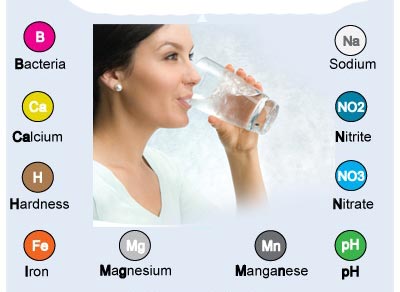DRINKING WATER ANALYSIS

The definition of potable water refers to water of all types, treated or untreated, designated for drinking, cooking, or other household purposes.
According to the World Health Organization (WHO), drinking water is a major vehicle for infectious disease transmission and the greatest microbial risks are associated with ingestion of water that is contaminated with human and animal (including bird) excreta. Faeces can be a source of pathogenic bacteria, viruses, protozoa and parasites.
Failure to ensure drinking-water safety by regular testing may expose people to the risk of outbreaks of intestinal and other infectious diseases. Pathogenic outbreaks associated with drinking water are particularly vicious because of their capacity to infect a large number of persons. Since potable water is used in cooking, microbes in the water can cause food-borne infections as well.
Diagnosing the possible pitfalls of water contamination can be a complicated matter as microbial or chemical contamination can occur during many of the processes involved in obtaining and securing water.
Parameters
- Total Coli form Count
- E.coli
- Total Bacterial Cell Count
We also undertake microbial analysis of processing water intended to be used in milk product manufacturing units where the presence of proteolytic, lipolytic and acidogenic bacteria are undesirable.